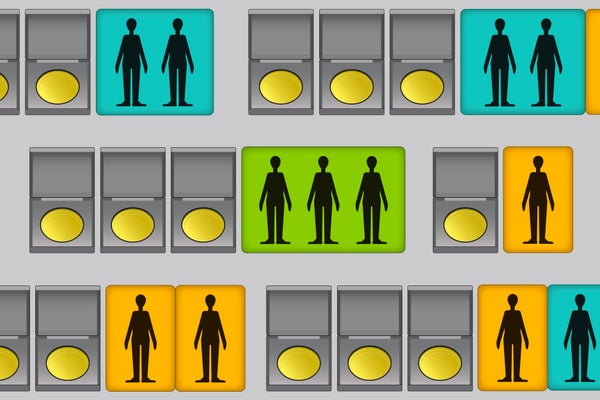September 24, 2024
5 min read
How Does Sharing a Nobel Prize Work?
Joint Nobel laureates aren’t necessarily direct scientific collaborators, and the prize money isn’t always split evenly
Most scientists can never receive a Nobel Prize, arguably the most prestigious award in science. Only physicists, chemists, and specialists in physiology or medicine are eligible for the honor—which comes with a gold medal, a diploma and currently up to 11 million Swedish kronor (about $1.07 million).
Multimillionaire Alfred Nobel established the prize pot—and those categories—in 1895 via his last will and testament. He decreed:
[My capital] is to constitute a fund, the interest on which is to be distributed annually as prizes to those who, during the preceding year, have conferred the greatest benefit to humankind. The interest is to be divided into five equal parts and distributed as follows: one part to the person who made the most important discovery or invention in the field of physics; one part to the person who made the most important chemical discovery or improvement; one part to the person who made the most important discovery within the domain of physiology or medicine; one part to the person who, in the field of literature, produced the most outstanding work in an idealistic direction; and one part to the person who has done the most or best to advance fellowship among nations, the abolition or reduction of standing armies, and the establishment and promotion of peace congresses.
On supporting science journalism
If you’re enjoying this article, consider supporting our award-winning journalism by subscribing. By purchasing a subscription you are helping to ensure the future of impactful stories about the discoveries and ideas shaping our world today.
That seems straightforward. The first awards in the science categories were presented in 1901 to Wilhelm Conrad Röntgen (physics), Jacobus H. van ’t Hoff (chemistry) and Emil von Behring (physiology…
Read the full article here

